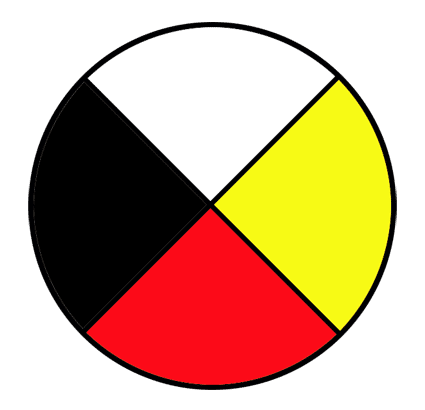I acknowledge, with respect, the Coast Salish Peoples and the First Nations Peoples of Treaty Six Territories.
At a recent gathering of Victoria mediators, participants suggested various topics for discussion groups which included self-care and compassion fatigue. These are areas with which I am familiar, especially as they relate to work/life balance. Thirty years ago, my younger son was born at Mount Sinai Hospital in Toronto where he was diagnosed with Hemophilia A - an inherited bleeding disorder. It’s often been a bumpy ride. On the bright side, I’ve travelled across Canada with my work with Canadian Hemophilia Society and with the Ministerial Advisory Council. I’ve also traveled to Mongolia and Argentina under the auspices of World Federation of Hemophilia and have presented seminars and workshops at First Nations conferences in BC, SK and AB. My work as a communication consultant, trainer, instructor, facilitator and mediator has been greatly enriched by my experiences with communities challenged by chronic health issues including addictions, bleeding disorders, HIV and HCV.
In writing this article today, I remember a conversation with Elder Rose at a First Nations HIV/HCV Conference in Saskatoon. When I asked her what she thought was the most important message to deliver during my upcoming presentation, she said simply, “Tell them
they have to be strong. Strong in every direction.” I have passed her message along many times, and I have taken her advice to heart.
The teachings of the medicine wheel, generously shared with me during my travels, are precious gifts which I’m happy to pass along. I use the medicine wheel as scaffolding to explore processes such as learning, leadership, perception, listening, and facilitation, and also as a self-assessment tool to determine whether I’m investing my time and energies wisely and productively. What am I doing that is life-affirming and bringing me closer to my goals? What might be acts of self-sabotage?
A personalized medicine wheel might be helpful to you as well. The following examples of directions, dimensions, activities and considerations are offered as a point of departure
and with the following qualifications: I’m a lifelong learner of the lessons of the medicine wheel, not an expert, and this article is hyper-condensed.

The four directions
The medicine wheel represents the circle of life; the four dimensions represent our growth and development in the spiritual, emotional, physical and intellectual realms of our lives. When we develop ourselves fully in each quadrant we live a balanced life. When we are “strong in all directions” the circle is full; when one or more of the dimensions is weak, the circle is compromised. We’re going to fail miserably from time to time, but the medicine wheel can be used to get us back on track.
East: Spiritual strength
Spiritual strength, equanimity, and resilience can be fortified by cultivating healthy relationships and by mindfulness, walking, dancing, knitting, creating art/crafts/music, yoga, choir, church, . . .
Suggested reading: Viktor Frankl - Man’s Search for Meaning
South: Emotional equilibrium
Minimize the language, self-talk, beliefs, irrational beliefs (approval, pleasing others, perfectionism, helplessness/victimhood, comparisons, expectations, envy) that suck the joy out of life. Minimize time spent with those who choose to suffer unnecessarily; minimize drama.
Suggested reading: Don Miguel Ruiz - The Four Agreements
West: Physical health
Create micro-routines. Restorative sleep. Non-tyrannical nutrition program (more water, more veggies, less sugar). Relaxation. What is one small thing I can do differently today that would create a healthier version of my future self?
Suggested reading: Jordan B Peterson: 12 Rules for Life: An Antidote to Chaos
North: Mental health/brain health
Meditation. Walk on uneven surfaces. Balance solitude/isolation. Learn to dance, play a musical instrument, a new language. Read. Write. Engage in stimulating, thought-provoking conversations. Listen wholeheartedly.
Suggested readings: Norman Doidge:
- The Brain That Changes Itself
- The Brain’s Way of Healing
Create a personalized medicine wheel
- Draw a circle with four directions and the corresponding dimensions. Keep track of your medicine wheels. Date them.
- Take stock: On a scale from zero - 10, how strong are you feeling in each of the four aspects?
Plot each of the four numbers in the corresponding quadrant. Is the circle full, or misshapen?
- Use categories, lists, check marks and/or graphics to record your activities in each quadrant.
- If you discover you’re strong in one aspect of your life (e.g. physical health), keep up the good work; however, if you’re neglecting friends or responsibilities (spiritual aspect), then your upgraded To-Do list might include a list of people to contact over the next few weeks, or identify steps to take to accomplish a task by a specified date.
Self-care and balance
Consider how the medicine wheel approach might serve your efforts to create a more balanced life. Travel lightly on the periphery of the wheel, just to get your toes wet, with mindful breathing (spiritual), a post-it-note on your bathroom mirror reminding you “perfectionism is a form of mental illness” (emotional equilibrium), sipping water (physical health) as you absorb a Yuval Noah Harari interview on TedTalks (intellectual growth). Or, you might decide to dive deep and commit to a regular volunteer gig (spiritual) for 10 weeks, participate in an anxiety management program (emotional), maintain a physical activity journal for four weeks (physical/mental), and read some of the classics (intellectual growth) you missed during a gloriously misspent youth.
Have you been thinking about a smoking cessation or blood pressure management program?
A holistic approach, including mindfulness/breathing techniques (spiritual), peer support (emotional), pharmaceuticals/meds (physical) and information (mental) is a powerful approach.
The gentle, non-judgemental wisdom inherent in the lessons of the medicine wheel can guide your decisions and redirect your energies. Small steps, in the right direction, repeated over time, take you closer to where you want to be. Take inventory. Recalibrate. Be strong in all directions.
“When we are no longer able to change a situation, we are challenged to change ourselves.” ~ Dr. Viktor Frankl
Faye Katzman, M.Ed., B.A. (Hons) is a member of the Victoria Mediators Lounge. FayeKatzman@gmail.com